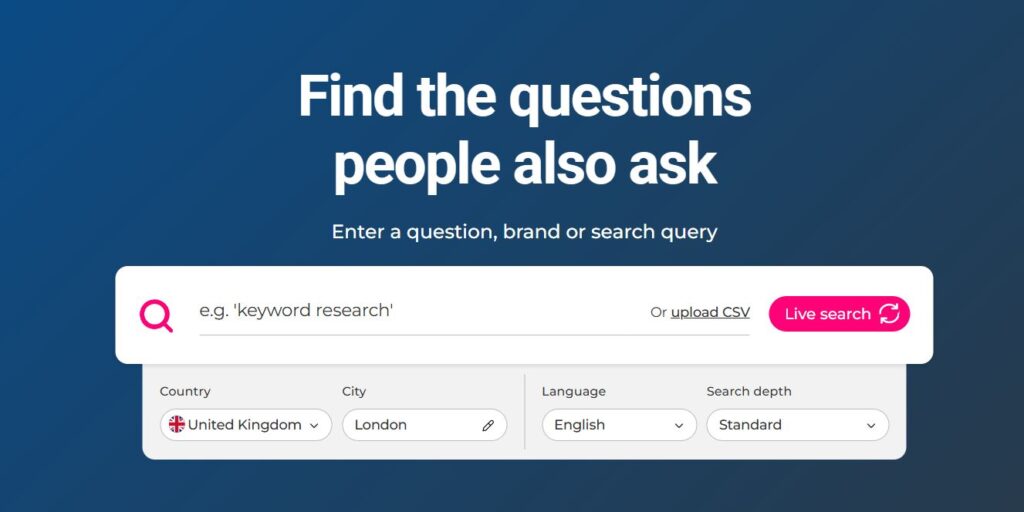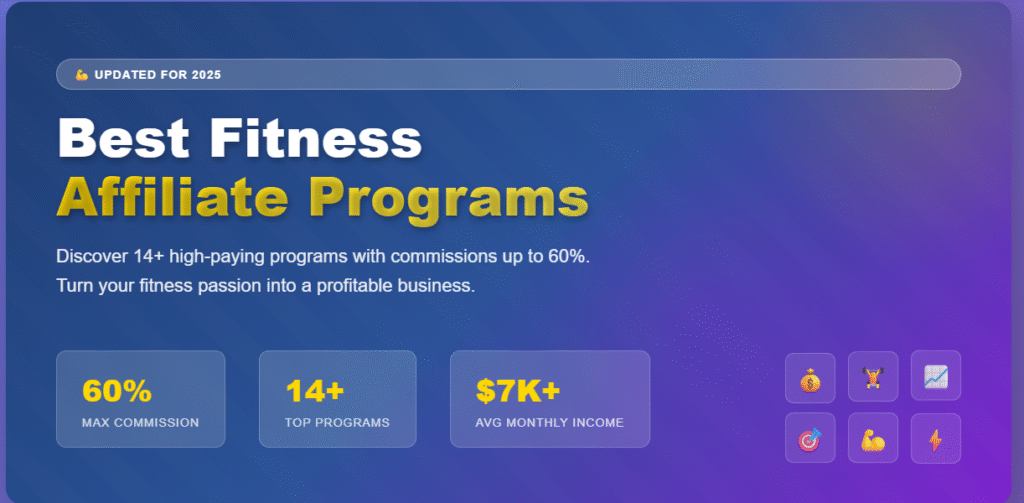AlsoAsked has become a popular choice for marketers and content creators looking to tap into Google’s “People Also Ask” data. With its visual question trees and real-time PAA data scraping, it’s helped many professionals understand the question sequences users follow during their search journey.
However, if you’re looking for broader data sources, better pricing options, additional features, or simply want to explore what else is available beyond Google PAA data, here are some compelling alternatives to AlsoAsked.
What Makes a Good AlsoAsked Alternative?
Here are the key criteria we used to evaluate each option:
Question-based research capabilities should effectively surface questions and long-tail keywords that reflect actual user queries.
Data source diversity provides broader coverage beyond just Google PAA, including other platforms and real user conversations.
Search volume and intent data helps prioritize which questions and keywords to target first.
User-friendly interface allows you to quickly navigate and extract insights without complexity.
Export and workflow capabilities let you save research and integrate findings into your content strategy.
Value for money the tool fits within your budget while delivering meaningful insights.
Top 7 AlsoAsked Alternatives
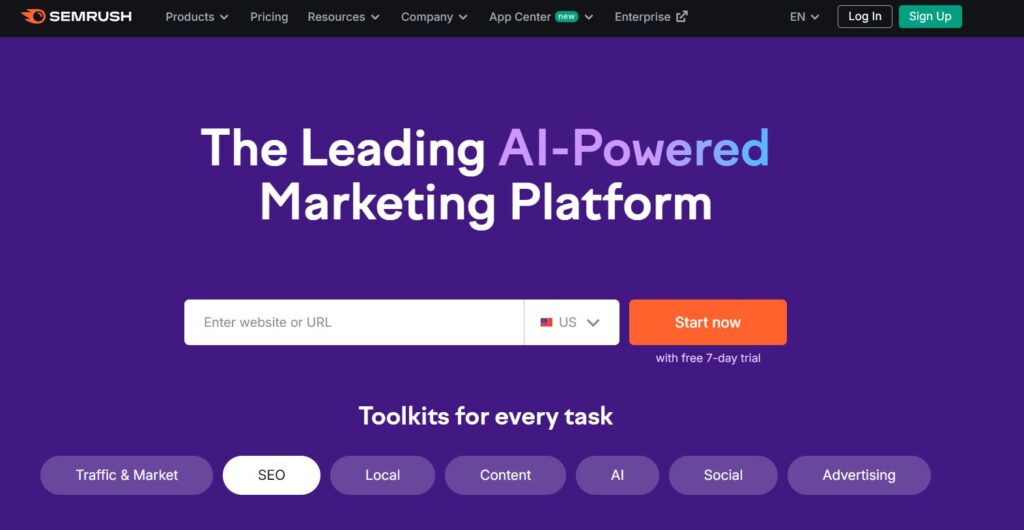
Best For: Digital marketing agencies, in-house marketing teams, and SEO professionals who need comprehensive competitive analysis.
SEMrush offers comprehensive question research through its Keyword Magic Tool and Topic Research features, going far beyond simple PAA data. It’s particularly powerful for users who need competitive intelligence alongside their question research.
Key Features:
- Keyword Magic Tool with advanced question filtering
- Topic Research tool for content ideation
- Competitor content analysis and gap identification
- Position tracking and SERP analysis
- Social media and PPC research capabilities
- Content audit and optimization suggestions
Pricing: SEMrush starts at $119.95/month for the Pro plan, with Business ($229.95/month) and Enterprise (custom pricing) options available.
Pros: Extensive database, advanced filtering options, comprehensive competitive intelligence, excellent customer support.
Cons: Higher price point, steep learning curve for beginners, can be overwhelming for simple keyword research needs
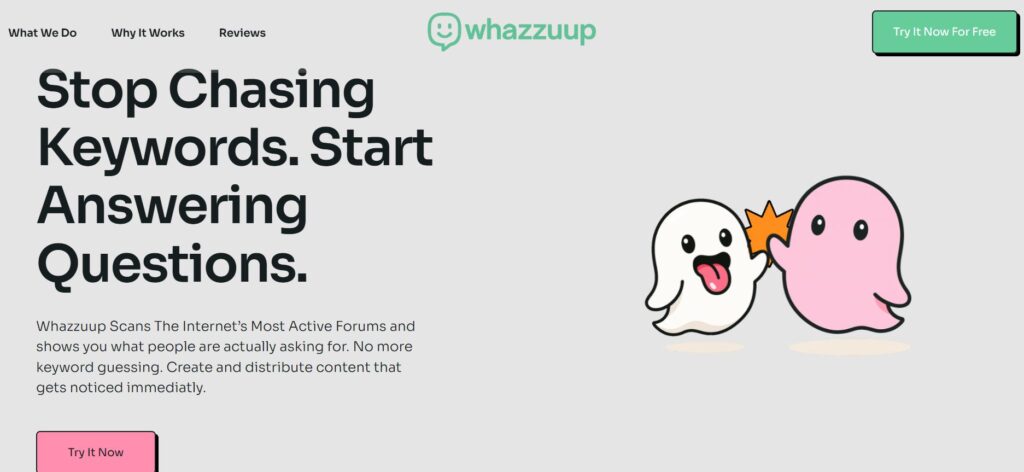
Best For: Affiliate bloggers, solo creators, and marketers who want to create and distribute question-led content without relying on SEO
Whazzuup is a newer tool designed specifically to help creators and marketers surface high-intent questions from real users across Reddit and Quora. Unlike tools that rely solely on Google autocomplete or PAA data, Whazzuup focuses on actual conversations happening in online communities — making it especially useful for bottom-of-the-funnel content and affiliate marketing.
Key Features:
- Curated questions pulled from Reddit and Quora combined with Google rank and search volume
- Intent scoring system to prioritize threads with buying signals
- “Content IQ” shows where and how to distribute your content
- Save searches and managed content creation lifecycle
- Built-in reply generator to help you respond authentically and promote your content
- No need to chase keywords — start with the questions your audience is already asking
Pricing: Whazzuup offers a free trial and then 14$ per month.
Pros:
- Focused on real user intent, not just keywords
- Surfaces content distribution opportunities automatically
- Lightweight, fast, and easy to use
- Built for Reddit/Quora-driven traffic and conversions
Cons:
- Not a full SEO suite – designed more for distribution than technical SEO
- Currently limited to Reddit and Quora. Others are coming soon.
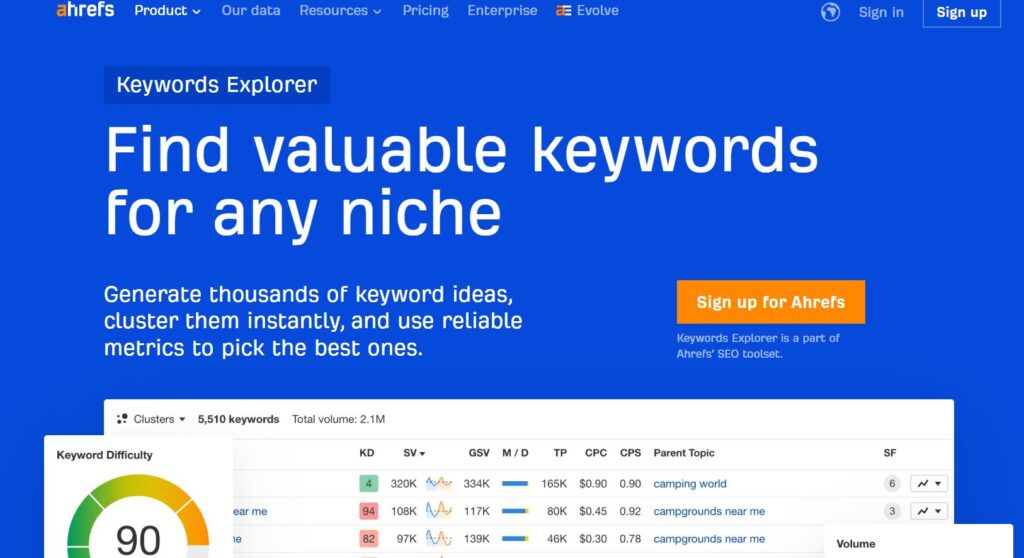
Best For: SEO professionals, agencies, and enterprises that prioritize data accuracy and comprehensive keyword research.
Ahrefs has built a reputation as one of the most comprehensive SEO toolsets available, and its Keywords Explorer includes powerful question research functionality. The platform is particularly valued for its massive keyword database and accurate search volume estimates.
Key Features:
- Questions report showing question-based keywords
- Massive keyword database covering 170+ countries
- Advanced filtering and sorting options
- Keyword difficulty analysis with detailed explanations
- SERP overview with ranking pages analysis
- Click-through rate estimates for organic results
Pricing: Ahrefs starts at $99/month for the Lite plan, with Standard ($199/month), Advanced ($399/month), and Enterprise ($999/month) options.
Pros: Excellent data accuracy, massive keyword database, powerful filtering options, regular database updates.
Cons: Premium pricing, complex interface for beginners, primarily focused on SEO rather than content marketing.
4. Ubersuggest
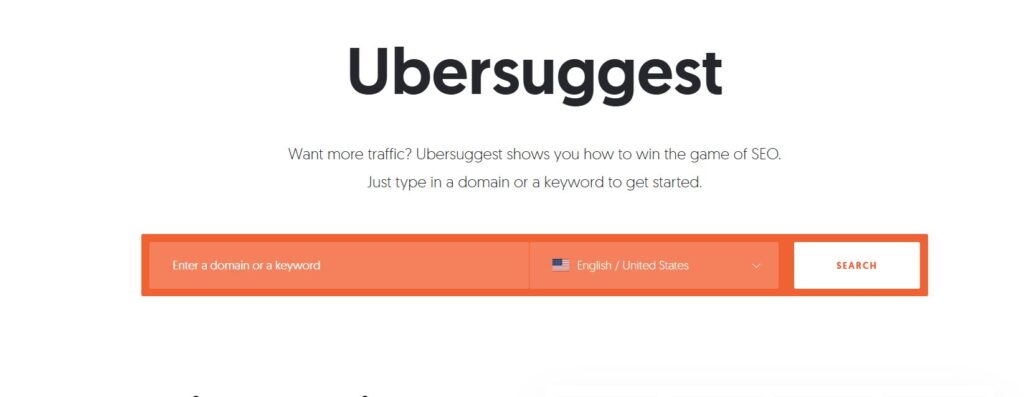
Best For: Small businesses, individual marketers, and agencies looking for an all-in-one solution that’s more affordable than enterprise alternatives.
Ubersuggest, created by digital marketing expert Neil Patel, has evolved into a comprehensive SEO toolset that excels at question-based keyword research. The platform combines keyword suggestions with competitive analysis and content ideas, making it a well-rounded alternative for content marketers.
Key Features:
- Extensive question suggestions with search volume data
- Content ideas based on top-performing pages
- Competitor analysis to identify content gaps
- Chrome extension for on-the-go research
- Keyword difficulty scores to assess competition
- Backlink analysis and site audit capabilities
Pricing: Ubersuggest offers a generous free tier with limited daily searches, while paid plans start at $29/month for individual users and scale up to $99/month for agencies.
Pros: Intuitive interface, comprehensive free tier, excellent value for money, regular feature updates.
Cons: Fewer advanced features compared to enterprise tools, occasional data accuracy issues. Doesn’t pull from Reddit or Quora.
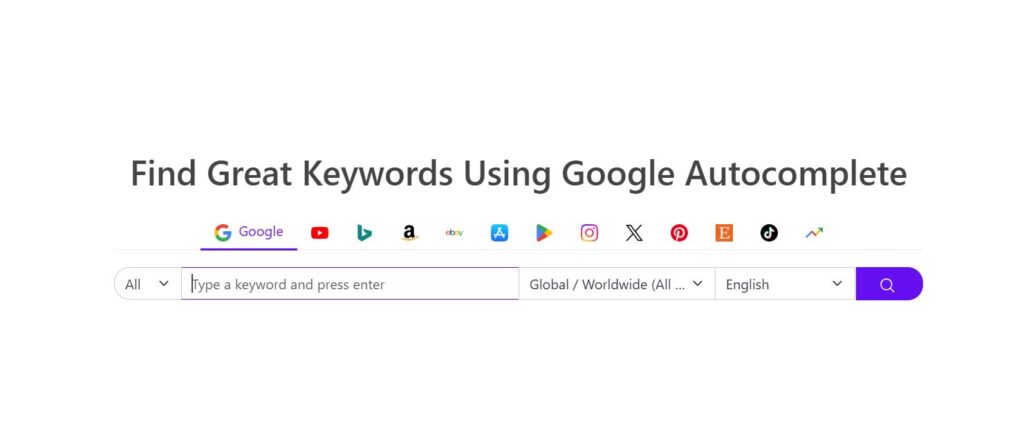
Best For: Multi-platform content creators, e-commerce marketers, and YouTube content creators.
KeywordTool.io distinguishes itself by providing keyword suggestions from multiple platforms including Google, YouTube, Amazon, Bing, and App Store, making it particularly valuable for multi-platform content strategies.
Key Features:
- Multi-platform keyword research (Google, YouTube, Amazon, etc.)
- Autocomplete-based keyword suggestions
- Long-tail keyword focus with question formats
- Language and location targeting
- Negative keyword identification
- Basic search volume data (paid plans)
Pricing: KeywordTool.io offers a free basic version with limited results, while paid plans start at $89/month for Pro and $179/month for Pro Plus.
Pros: Multi-platform coverage, focus on long-tail keywords, simple interface, decent free tier.
Cons: Limited search volume data on free plan, fewer advanced features, higher pricing for full functionality.
6. QuestionDB
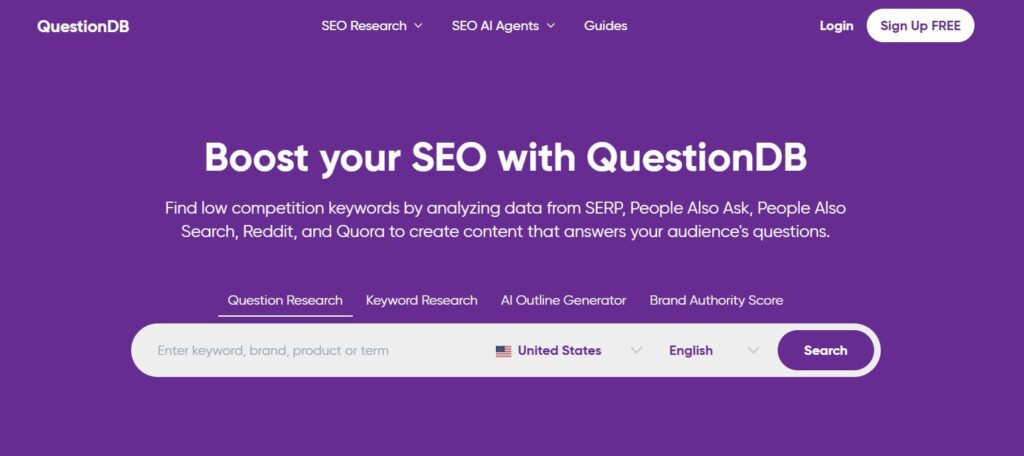
Best For: Understanding customer pain points, community managers, and content creators focused on addressing real user concerns
QuestionDB approaches keyword research from a different angle by aggregating real questions that people ask on forums, communities, and Q&A sites. This provides insight into actual user language and pain points.
Key Features:
- Real questions from forums and communities
- Topic clustering and categorization
- Source attribution for context
- Sentiment analysis of questions
- Search and filter functionality
- Export capabilities for research data
Pricing: QuestionDB offers a free tier with limited searches, while paid plans start at $12/month for individual users.
Pros: Real user language, unique data source, affordable pricing, insight into customer pain points.
Cons: Limited search volume data, smaller database compared to major tools, newer platform with fewer features.
How to Choose the Right Alternative
Budget considerations. If you’re working with limited resources, start with free options like Whazzuup or Google Keyword Planner, or consider tools with generous free tiers like Ubersuggest. For established businesses with marketing budgets, investing in comprehensive tools like SEMrush or Ahrefs often provides better long-term value.
Team size and expertise level significantly impact which tool will work best. Solo marketers or small teams often benefit from user-friendly options like Ubersuggest or Whazzuup, while larger teams with SEO specialists can leverage the advanced features of Ahrefs or SEMrush more effectively.
Specific use cases should guide your decision. If you’re primarily looking for PAA alternatives, SEMrush or Ahrefs might be perfect. For multi-platform content strategies, KeywordTool.io’s broad coverage could be ideal. If you want to answer real questions and see distribution options, choose Whazzuup.
